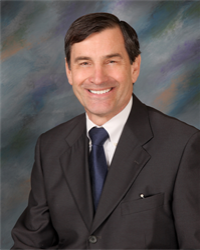Helicopter operations in the North Sea are currently safe, according to HeliOffshore, the global offshore helicopter industry safety association.
“Thanks to an industry-wide commitment to global collaboration, we are implementing best practices, funding research, delivering training to enhance the use of automation and investing in systems to enable the secure exchange of data and safety information,” Gretchen Haskins, CEO of HeliOffshore, told Rigzone..

HeliOffshore’s safety endorsement follows a number of incidents involving helicopters in the North Sea last year.
In April 2016, a Eurocopter EC225LP carrying a Statoil ASA crew from the Gullfaks B oil platform was involved in a fatal crash en-route to the Bergen airport on the West Coast of Norway.
Another incident took place in December of last year on the North Sea’s West Franklin platform, as a Sikorsky S92 helicopter was attempting to land.
Low Oil Price Not Compromising Helicopter Safety
In addition to confirming the safety of North Sea helicopter operations, HeliOffshore insisted that the continuing low oil price environment was not having a compromising effect on helicopter safety in the region.
“HeliOffshore now has 103 members [more than double the amount of members it had in May 2015] – each of which are demonstrating that challenging market conditions won’t sway us from a shared commitment to safety,” Haskins said.
“Our obligation remains to focus on what we can control; delivering safe offshore helicopter services and sharing safety expertise to the benefit of our industry,” she added.
Helicopter operator CHC echoed Haskins’ comments, stating that market conditions had no bearing on safety within the company.

“Safety continues to be our first and foremost priority at CHC, regardless of market conditions,” Duncan Trapp, CHC vice president of safety and quality, said.
“We engage frequently with our customers to ensure any efforts to streamline business have no adverse impact on safety. We will continue to collaborate across the industry through HeliOffshore to further enhance safety,” he added.
American aircraft manufacturer Sikorsky was also adamant that a low oil price had no negative impact on safety operations.
“Safety is an uncompromising core value and current market conditions have had no adverse impact on OEM safety programs,” George Klug, Sikorsky Aircraft chief safety officer, told Rigzone.
Ensuring the Safety of Future North Sea Helicopter Operations
In an effort to ensure the safety of future helicopter operations in the North Sea and beyond, HeliOffshore has issued a number of key areas of focus for 2017.
These include issues related to:
- Operational Effectiveness: the enhancement of situational awareness
- Reliability & Resilience: the early diagnosis and resolution of potential failures
- Safety Enablers: continuing to foster the exchange of safety information
- Survivability: supporting the implementation of enhanced emergency breathing systems
Following the publication of HeliOffshore’s industry focus areas, CHC praised the work of the safety body and emphasized its importance to the helicopter safety sector.
“The work of HeliOffshore – of which we are a part of – is increasingly important in addressing topics that relate to industry-wide challenges and where global collaboration is essential. Internally, we are constantly improving the safety training we provide our pilots, engineers and support staff with an emphasis on proactive reporting – which allows us to best identify and manage potential risks before they become a reality,” Trapp said.
The helicopter operator also suggested that careful monitoring and collaboration would be instrumental in its efforts to keep oil and gas workers in the North Sea safe this year.
“We carefully monitor all of our operations in the North Sea, as well as throughout the world. Our Safety Management System helps us not only learn from previous events, but also incorporate emerging ideas and new technology from across our industry,” Trapp said.

“We collaborate extensively with our fellow operators, with government and commercial safety organizations, the regulators who oversee our industry, and the various manufacturers that supply our industry to adopt best practices that advance safety wherever possible,” he added.
Sikorsky hailed the industry body’s actions too, with Klug stating that groups such as HeliOffshore provide an avenue for communication and collaboration of essential operating information. The helicopter manufacturer also suggested that its recent S92 fleet-wide inspection would go some way towards protecting oil and gas workers in the North Sea in 2017.
“Sikorsky’s recently issued S92 fleet-wide inspection, plus onboard systems that download key aircraft parameters for evaluation, continue to augment our technical support personnel who are in constant contact with customers to provide continued safety of our aircraft,” Klug said.
“This also allows increased reliability and early management of identified issues,” he added.
source: http://www.rigzone.com/news/oil_gas/a/148951/HeliOffshore_Deems_North_Sea_Helicopter_Operations_Safe/?pgNum=1
